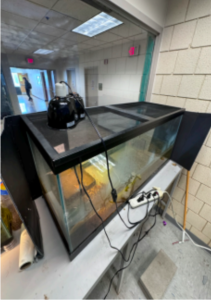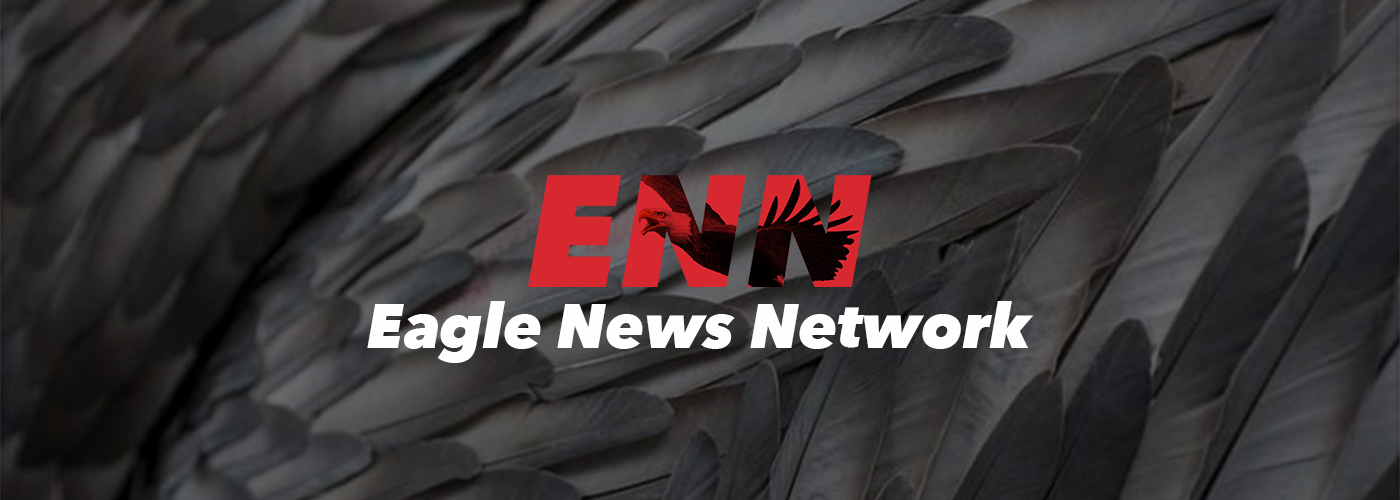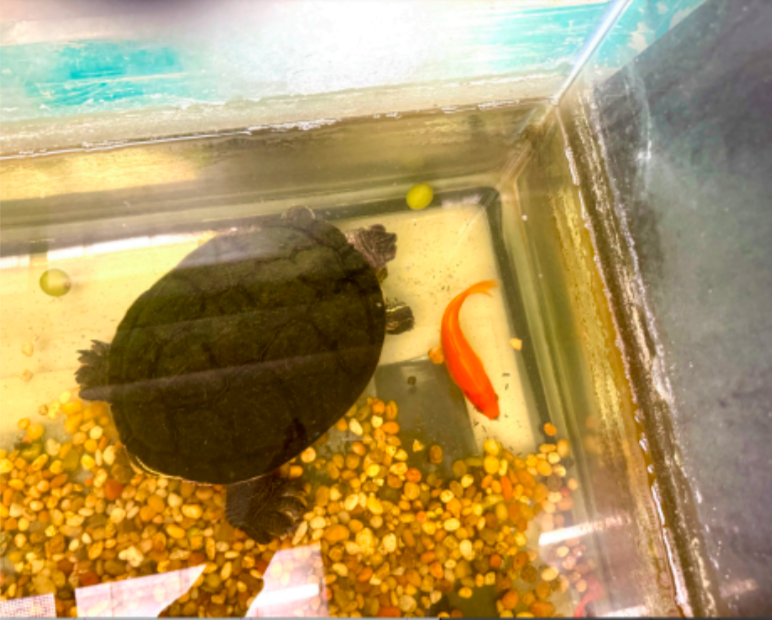Through much controversy and discussion, students have continuously worried about the turtle found in the science department at Eden Prairie High School. Speculations of the turtle being mistreated or neglected circulated amongst the students, some saying it looks “sad” or “depressed.” An anonymous student says “It’s tank looks so sad, and I don’t really see it move much.” But without the correct information on the animal itself, it’s unfair to make those speculations. Albert (the science turtle) is a red-eared slider which is not native to Minnesota. Red eared sliders require over a 100 gallon tank, as Albert is provided with a 128 gallon tank along with a heating lamp, and a diet consisting of a wide variety of plants and animals. Without knowing this, students have been giving human traits to something that is not human. You do not need to pamper a turtle the way you would a cat or a dog; turtles usually live in murky waters and earthy environments. Along with that, red eared sliders do not need a companion the way a dog would. Similar to a betta fish, this species of turtles can only be kept together in a tank until they reach a certain size. When they grow bigger, the turtles will start to bite each other to assert dominance, in turn creating an unsafe environment for them to thrive in.
The caretaker of the turtle, Mr. Sandeen, says, “This is a very clean environment compared to where wild turtles live. This tank is neutrally balanced, it has a filter, I clean it occasionally, I add water continuously, and it’s fed a regular diet.” Many speculations being made about this turtle come from what just the viewers can see. Sandeen invites volunteers to help take care of the turtle by feeding it, cleaning the tank, and becoming overall more educated on the care turtles require. Sandeen expands on this: “If someone wants to spend time researching and figuring out a way to make a better environment or provide something that’s missing for the turtle, I welcome that because I’m a scientist. I always like to learn, if there’s something I’m not doing correctly I want to address that.” Another common belief is that the turtle should be released into the wild. “It would be inhumane to release the turtle, because it would die,” Sandeen says. And he is completely correct! Red eared sliders are native to the southern United States and northern Mexico. They went from their home in the south-central United States, to every continent except Antarctica. In some places, they’re outcompeting multiple native species. They grow larger than many native turtles, and this allows them to take over food sources, basking sites, and nesting locations in their non-native range. They thrive in warm climates and need constant sunlight to bask in throughout the day.

In any temperature below 35 degrees fahrenheit, the turtle may start to freeze. But temperatures just above 60 degrees fahrenheit may cause something called false brumation. False brumation means that the turtle would be too cold to move around, but too warm for its metabolism to drop. In the end, this results in the turtle starving to death. At EPHS, our turtle is provided with a heated mat underneath the tank to warm the water and keep the temperature regulated to eliminate any of these dangers. But how did red eared sliders come to Minnesota? Well, it’s a problem that goes back decades. According to a US Geological survey, red eared sliders have been released from households since the 1930s. Whenever the pets become too big or too high maintenance, owners will release them into the wild where they will rapidly breed. Albert once belonged to a student that graduated, but thankfully was not released into the wild. In search of a new home, EPHS took it in as its own. Mr. Sandeen has taken over the responsibility of caring for it, saying “I said I would take it, and I gave it a much larger cage than it had.” Although there are many misconceptions surrounding the well being of this turtle, with the correct research you will come to find Albert is well taken care of, and in no way being mistreated.



